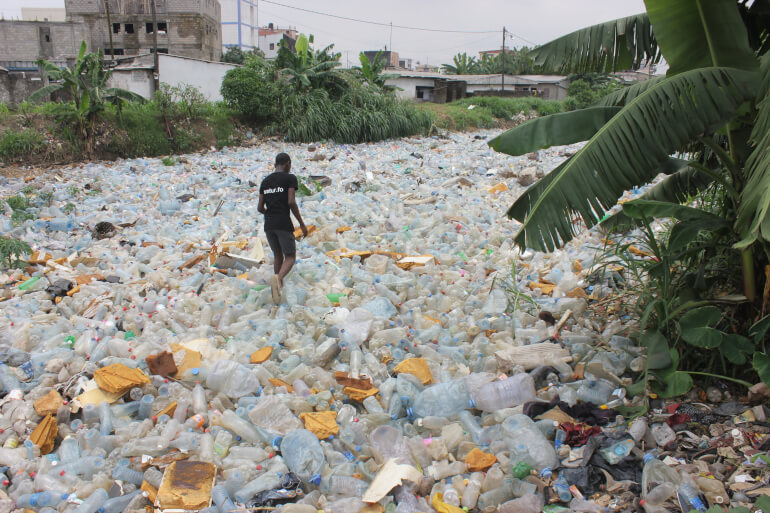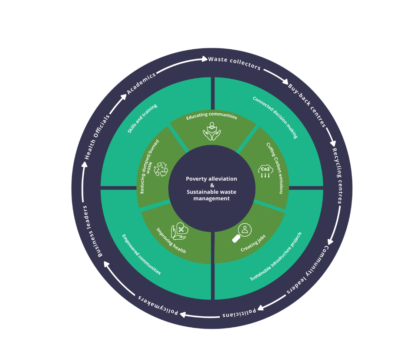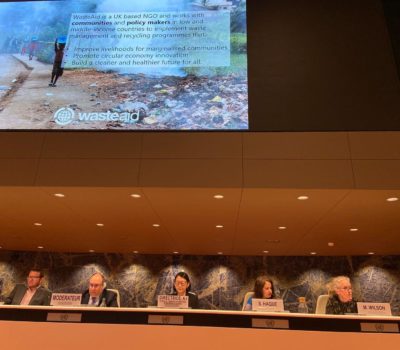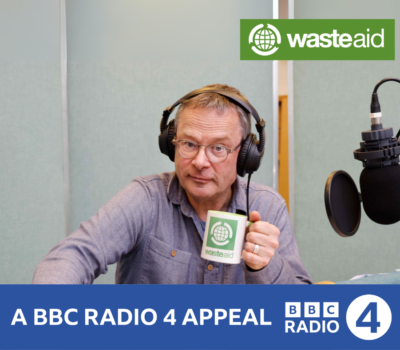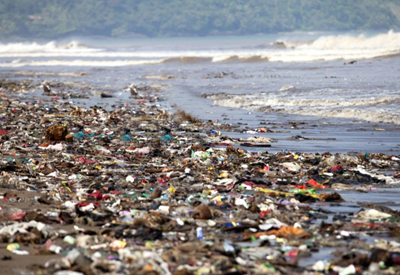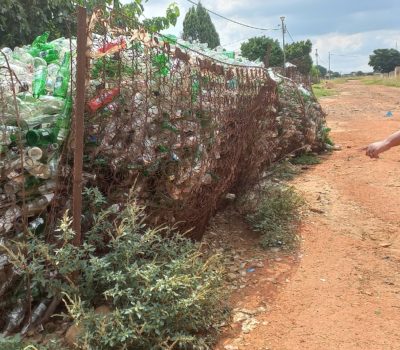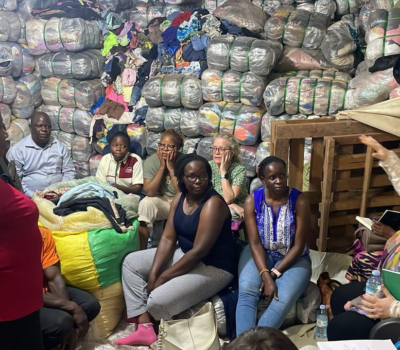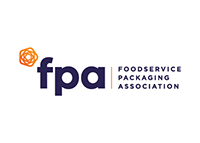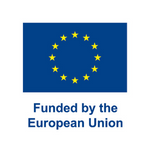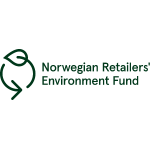Partnerships are key: a Q&A with our CEO
News
Author: Ceris Turner-Bailes
Published: 11 March 2021
Corin Williams, Editor of MRW, interviewed WasteAid’s Chief Executive, Ceris Turner-Bailes.
CW: You joined WasteAid just a few weeks into the first lockdown. What challenges did you have to overcome and how did the organisation have to change its operations?

It has been particularly tough for the launch of our Circular Economy Network, which really relies on relationship building and networking. The project team have done so well to move activities online.
For the initial part of lockdown, our UK government-funded projects were suspended, although we continued to support partners financially for a period of time from WasteAid’s own funds. This break in project activities did provide us with a great opportunity to review progress and ensure our inputs were achieving the desired objectives.
Lockdown also meant difficult times for some of our corporate supporters, but we have such great partnerships that in the long term these remain unaffected.
CW: How has the pandemic affected the communities with which WasteAid works?
CTB: Much as in the UK, the pandemic has had a terrible effect on economies and both lockdowns and restrictions have meant that our projects are now trying to regain that lost momentum. We’re not hearing about massive infection rates in the communities where we work, and we hope that it stays that way. Large households and poorer sanitation are risks for the communities where WasteAid has a presence. Waste handling can be even more hazardous in these times and WasteAid has developed resources to help communities navigate this. We have also funded measures help resilience to Covid such as handwashing stations in Kenya.

CW: What are the most pressing issues facing your partner organisations on the ground – for instance the plastics recycling training in Douala – in the context of Covid-19?
CTB: Our change model involves project beneficiaries and partners deriving an income from waste. One of the most challenging aspects of the work is to develop a market for recycled goods in order to build sustainable businesses. The enormous economic shock of the pandemic can negatively affect fledgling businesses, as we have seen here in the UK. Our partners must also follow local regulations when carrying out project activities which can make the situation more complicated and cause delays.
Aside from that, in most of the countries we work in, we would like to see local or central government investment and support for waste management to really have an impact. The pandemic will clearly take both attention and funds away from that goal, making ours and our partners’ work just that little bit harder.
CW: You have a wide and varied CV – what awareness of the importance of waste management did you have before joining WasteAid?
CTB: Having worked extensively in Africa and Asia, I was fully aware of the waste crisis in low income countries having seen it up-close in countries such as Dem Rep Congo, Ghana, Mali and Afghanistan. I have also managed health and water and sanitation programmes in the past, and could easily understand why waste management is so important. I was also aware of the plight of waste pickers through previous roles delivering poverty alleviation programmes. I certainly had less of a detailed knowledge of the impact of poor waste management practices on climate change and marine biodiversity.
Since joining WasteAid I have learned a lot about waste management practices in lower-income countries and what can practically be done to improve the situation. Locally appropriate solutions are crucial and in order to promote sustainability, low tech solutions can often have the greatest impact.
CW: Are your experiences in the Royal Air Force and the diplomatic service proving useful in your current role?
CTB: Both of those careers seem quite a long way behind me now (clearly getting old), but obviously the military teaches you some great skills in terms of management, problem solving and getting things done! The Diplomatic Service certainly furnished me with an understanding of how government policy is developed and the importance of linking in with British diplomatic representation in the countries where we work. I would say that my previous 13 years in international programme management for governments, non-profits and the private sector working across Africa and Asia are probably the most relevant to this role though!
CW: What’s your view on international efforts to prevent exported waste being dumped in Africa and Asia?
CTB: It’s a global market, so by its nature recycling also involves some degree of international trade. Where products are genuinely going to be repaired e.g. WEEE or materials recycled e.g. paper and plastics, then of course international trade is welcomed. The real challenge is a lack of regulation and enforcement, both in waste producer countries and receiving countries. However, the amount of waste being shipped around is tiny in comparison to the waste that is already generated in these countries and simply isn’t being collected – so that will remain our priority.
CW: What targets do you have for WasteAid over the next five years?
CTB: I have huge ambitions for WasteAid, and really believe that we are on the cusp! I think we are really making the switch from an organisation that may have been seen as niche to becoming more of a mainstream development actor – and with this we are constantly raising the profile of waste management in the sector.
At the moment, we are increasing our presence in the countries where we work and have over 2020 put together some compelling programmes that will be funded this year (I am just not yet able to announce full details). We are looking to grow our presence in Sub Saharan Africa and are hoping to work in new countries such as Democratic Republic of the Congo and potentially Sierra Leone as we feel that the needs and our proposed responses would really add value. We are developing our Circular Economy Network programme in Vietnam, South Africa and India and are hoping to establish a greater presence in these countries, as there is so much work to be done.
We are also working on further developing our impact measurement and continually improving our model of transformational change.
Our work is all about partnership. As a small and agile organisation, we know we can have a greater impact if we work together with other organisations that complement our work. Therefore, we will be looking to continually develop strategic partnerships to bring about the change we want to see – to reduce waste, enhance waste management systems, support innovation, promote the circular economy and improve livelihoods.
If your business is looking for the right charity partner to make lasting impact, please visit our CSR page.
This Q&A was originally published in MRW.

